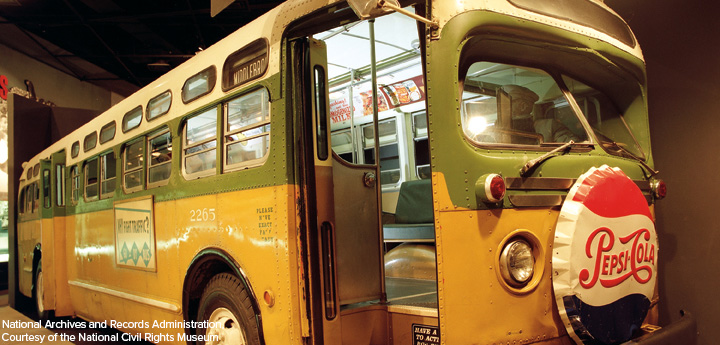
Have you heard the phrase, “Black history is American history”? It’s true that designating all of Black history to just one month does not recognize the fact that Black history cannot be separated from the story of our nation as a whole. But it can be helpful to consider Black History Month as a special time to focus on, and celebrate the contributions of Black Americans. This month btw honors Black history by exploring some people who made a meaningful impact. This week we take a closer look at Georgia Gilmore.
Who Was Georgia Gilmore?
You may have heard of Rosa Parks, who refused to give up her seat on a Montgomery, Alabama city bus in 1955. And you may also know about the Montgomery bus boycott that followed. But do you know about the secret kitchen in Montgomery where Dr. Martin Luther King, Jr., and other bus boycott leaders ate? This kitchen was headed up by a cook, midwife, and activist named Georgia Gilmore.
Gilmore was born on a farm in Montgomery in 1920, one of seven siblings. She grew up taking care of the farm animals. As an adult, she earned a reputation for standing up to racism and bigotry wherever she encountered it. Her son, Mark, grew up to become a longtime Montgomery city councilman.
The Club from Nowhere
Gilmore’s kitchen became a favorite of Dr. King and other civil rights leaders. She recruited other black women to prepare food in their kitchens and sell the food as placed such as beauty salons, churches, and protest meetings. This gave these women a way to fundraise for the movement without anyone (such as their white employers or landlords) finding out about it. They prepared fried chicken sandwiches, fried fish, pork chops, greens, lima beans, peach pie, poundcakes, sweet potato pies, and rice.

Gilmore called these women “The Club from Nowhere,” because that was the answer they gave when asked where the money they earned came from. The money was then used to help pay for a complex carpooling system that acted as an alternative method of transportation to get African Americans where they needed to go during the boycott, which lasted for 381 days.
Gilmore and the Civil Rights Movement
Gilmore’s kitchen inspired other groups of Montgomery women to do the same thing. But her contributions to the movement didn’t stop there. Gilmore also testified in court in 1956, when a Montgomery County grand jury indicted Dr. King and other leaders of the bus boycott, accusing them of unlawful conspiracy. Gilmore testified about getting kicked off a city bus for entering through the wrong door, and the racist white driver who did it. This testimony caused her to lose her job as a cook at the National Lunch Company.
Once she lost her job, Gilmore focused full-time on her cooking. Her kitchen became a favorite hangout for Dr. King and others such as Senator Robert F. Kennedy and President Lyndon Johnson. Gilmore died in 1990 after spending the day cooking chicken and macaroni cheese for people marching in honor of the 25th anniversary of the 1965 Selma march for voting rights.
